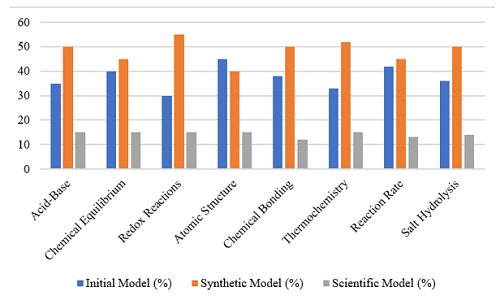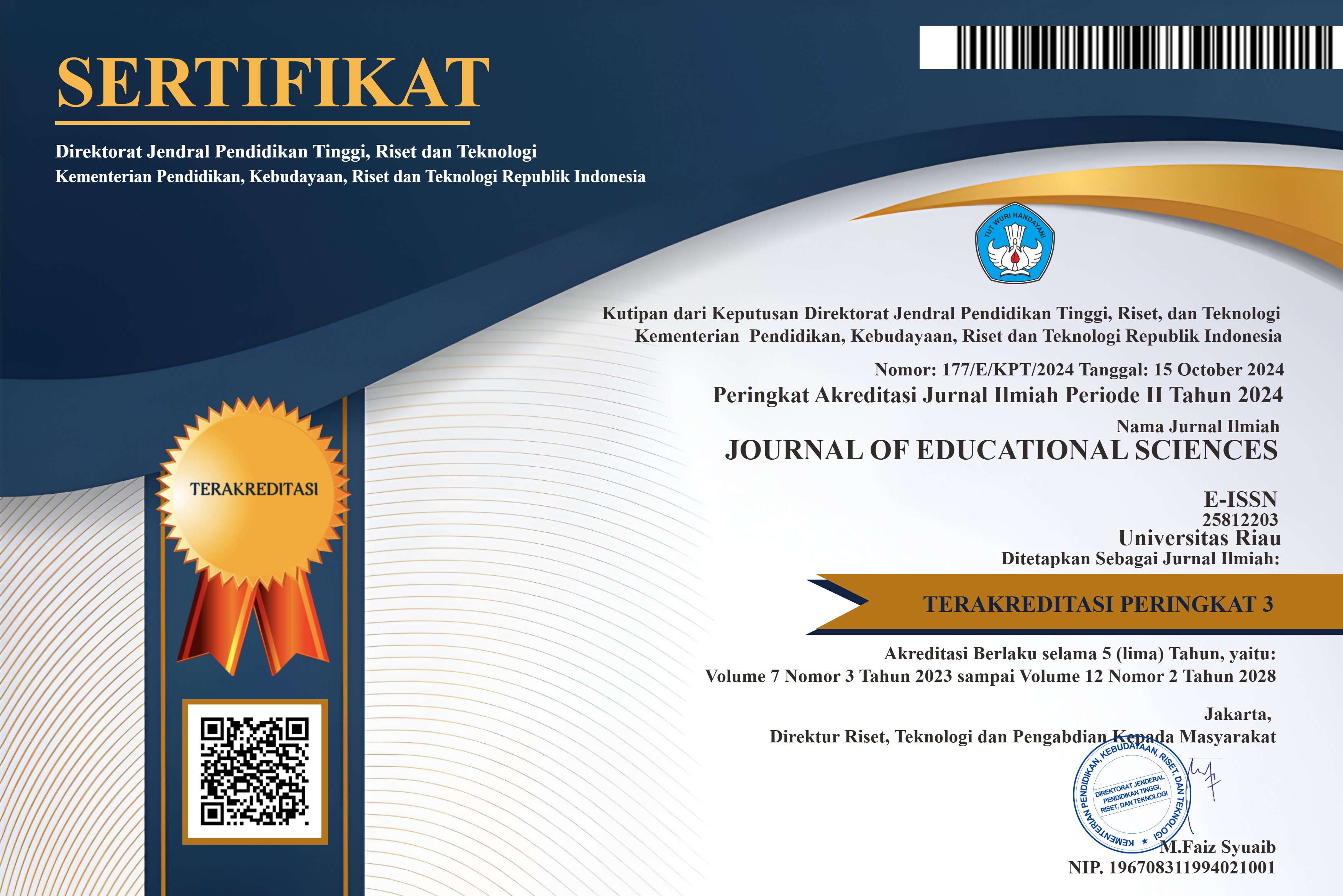Mental Models and Conceptual Change in Chemistry: A Literature-Based Perspective on Learning Challenges
DOI:
https://doi.org/10.31258/jes.9.2.p.811-826Keywords:
Mental models, Conceptual change, Chemistry education, Augmented Reality, Instructional Strategies, Misconceptions, Systematic Literature ReviewAbstract
This study aims to analyze students' mental models in chemistry, identify persistent misconceptions, and explore instructional strategies that facilitate conceptual change. A systematic literature review (SLR) approach was employed, examining 15 selected studies published between 2014 and 2024 from reputable academic sources. The findings reveal that synthetic models dominate students' understanding across various chemistry topics, indicating a mix of correct and incorrect scientific conceptions. Misconceptions are particularly prevalent in chemical equilibrium, redox reactions, and acid-base concepts, where students struggle to integrate macroscopic, submicroscopic, and symbolic representations. The study also reviews instructional strategies, including inquiry-based learning, model-based reasoning, and technology-enhanced approaches such as augmented reality (AR) and computer simulations. While these methods improve conceptual understanding, the transition from naive to scientific models remains challenging. The results highlight the need for interactive, multi-representational teaching methods to promote a more robust conceptual framework in chemistry learning. This review contributes to chemistry education by providing insights into effective pedagogical approaches for addressing misconceptions and improving students' conceptual development.
Downloads

Downloads
Published
Issue
Section
License
Copyright (c) 2025 Zulqifli Alqadri, Munawwarah (Author)

This work is licensed under a Creative Commons Attribution-NonCommercial-ShareAlike 4.0 International License.












